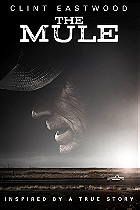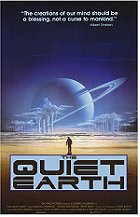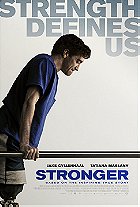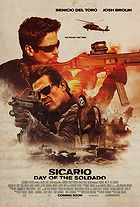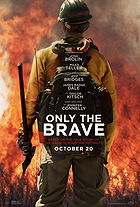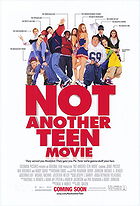Posted : 6 years, 4 months ago on 22 January 2019 06:04
(A review of
The third sequel to 1987's
Predator (not counting the indefensible
Alien vs. Predator pictures), 2018's
The Predator was a promising prospect in theory. After all, this is a big-budget, R-rated continuation of the franchise helmed by Shane Black (who actually starred in the original film), with a screenplay credited to Black and the underrated Fred Dekker (
The Monster Squad,
Night of the Creeps). Despite Black's undeniable talents,
The Predator is a complete dumpster fire; a messy, unfocused, obnoxious affront to a science fiction classic, devoid of the intrigue, tension, grit, exhilaration, and gripping action of the John McTiernan-directed masterpiece that spawned it. Suddenly, the two previous sequels -
Predator 2 and the underrated
Predators - seem much better and are easier to appreciate.

While engaged in a hostage retrieval mission in Mexico, skilled U.S. Army sniper Quinn (Boyd Holbrook) witnesses the crash landing of a Predator spacecraft, and diverts from his mission to investigate the wreckage. Before the government catches up with him, Quinn mails several alien artefacts to his Texas home, where they wind up in the possession of his autistic son Rory (Jacob Tremblay). After questioning, Quinn is placed on a secure bus with Group 2; a motley group of government captives consisting of Nebraska (Trevante Rhodes), Coyle (Keegan-Michael Key), Baxley (Thomas Jane), Nettles (Augusto Aguilera), and Lynch (Alfie Allen). Witnessing the Predator violently escaping from a government facility, Quinn and his newfound friends take it upon themselves to kill the alien, teaming up with evolutionary biologist Casey (Olivia Munn) as the Predator travels to the suburbs to retrieve his equipment from Rory. However, with a larger and more dangerous Predator arriving on Earth in pursuit of the Fugitive Predator, the situation goes from bad to worse.
It feels as if Black and Dekker developed several story ideas for
The Predator, but resolved to jam them all into a single motion picture. Any of the narrative concepts - remaking the first film with a ragtag team of mentally ill veterans in a contemporary Earth environment, the Predators having different opinions about an Earthly invasion, further exploring the 'Super Predator' idea, a Predator in the suburbs, and basically
Mercury Rising in a
Predator setting - could sustain a feature of their own (not all of them necessarily
good, mind you).
The Predator should be focused on Group 2 battling Predators, which is easily the strongest idea here, but it's diluted with the family angle that serves no essential narrative purpose; it feels shoehorned in to appeal to a wider demographic. Furthermore, a subplot involving the government is equally boring, not to mention wrong-headed in its execution. This is to say nothing of other baffling inclusions, such as Casey managing to befriend a Predator dog, which occurs without logic or motivation. Additionally, the Fugitive Predator viciously kills everybody it comes into contact with and seems solely concerned with destruction, yet it is revealed that this is a traitor who is opposed to hunting humans and came to Earth to gift humankind with a weapon to defend themselves against Predators. This type of stuff demonstrates the movie's disjointed nature -
The Predator exhibits the hallmarks of an ambitious reboot that was compromised by a nervous studio, leading to a bare bones final cut.

As demonstrated in 2013's Iron Man 3, Black's modus operandi with a pre-existing franchise is to deconstruct the property whilst creating a dialogue-based action-comedy. However, Black's treatment of The Predator is disastrous, ignoring tension and grit to create a cartoonish farce in which every character delivers quips and jokes, logic be damned. Even though the constituents of Group 2 grapple with real-world ills like PTSD and Tourette Syndrome, such conditions are merely used as punch-lines, making this feel closer to a parody than a legitimate franchise entry. Even more excruciating are the meta jokes, with groan-worthy call-backs to the original film's iconic dialogue which, again, makes this feel like Scary Movie. Hell, a Predator even uses a severed human hand to give a thumbs up. Even with the studio interference, The Predator is undeniably the silliest and most absurd Predator-related movie to date, and certain audiences might embrace the movie since it's so gleefully retarded and packed with "humour." However, if the comedic material is not to your liking, and the campiness does not appeal to you, The Predator is an insufferable endurance test, and fans of the original movie (this reviewer included) will find the finished product mortally offensive.
Almost inevitably, the actors severely lack the machismo of the original
Predator cast, and are not even as memorable as the ensemble glimpsed in 2010's
Predators. Even though Holbrook has made positive impressions in films like
Logan or the TV show
Narcos, he's easily the most forgettable lead in a
Predator movie to date. Keegan-Michael Key (understandably) earns the lion's share of the laughs, though he eventually fades into the background, while this is one of Thomas Jane's most disappointing performances in an action movie to date.
The Predator even recruits Jake Busey to play the son of Gary Busey's
Predator 2 role, but the resultant dull cameo squanders a golden opportunity. Black's tone-deaf dialogue makes matters worse, with Quinn's wife (Yvonne Strahovski) even delivering an impassioned speech about her husband's military achievements and positive attributes.

Despite The Predator's countless glaring flaws, it manages to only just keep its head above water for the first hour, with occasionally amusing jokes and entertaining set-pieces, while the Predator carnage is satisfyingly violent. However, the third act - which was entirely reshot merely a few months before the movie's release - is a total mess: it's beset with terrible ideas, baffling character decisions, and some of the worst digital effects ever glimpsed in a motion picture (SyFy original flicks included). The phoney-looking mayhem, especially the finale aboard a spaceship, is studiously uninvolving, feeling rushed from every technical perspective, while reshoot seams are visible. Worse, there is a distinct lack of cohesion to the final cut as a consequence of the reshoots, with unresolved narrative strands and disappearing characters. Adding insult to injury, The Predator closes with a gratuitous sequel set-up which is not only wildly out of place, but is a further insult to the sci-fi classic which started it all. The sequel tease (which will never be followed through) verifies that Black and Fox were solely interested in an expanded universe, even though this intellectual property does not lend itself to such a franchise. This type of blatant Marvel-inspired excess and idiocy has no place in a Predator movie.
At the very least, Black stayed true to his promise to deliver an R-rated sequel (one can only imagine how much worse a PG-13 cut would have turned out), Henry Jackman's retro-flavoured score gives the material agreeable flavour, and The Predator even resurrects the same font for its opening and closing titles that was used in the 1987 original (a nice touch). Outside of the hastily-reshot third act, the movie is often visually pleasing, with slick cinematography by veteran Larry Fong (Kong: Skull Island), but it's still not enough to redeem this bottom-of-the-barrel piece of shit.
This is it for the Predator series; Black has ruined it once and for all.
3.4/10
 Login
Login
 Home
Home 183 Lists
183 Lists 1668 Reviews
1668 Reviews Collections
Collections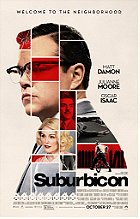



 0 comments,
0 comments, 